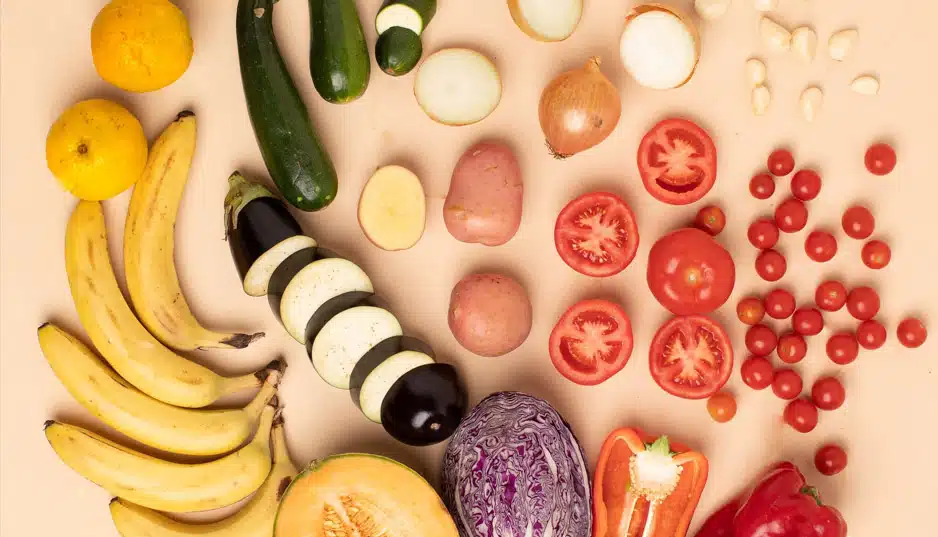Essential nutrition recommendations for kids to foster healthy eating habits early. Just in time for back to school!

Today we are treated to a post by one of our FLCCC senior fellows, none other than Dr. Kristina Carman! Dr. Carman is a naturopathic doctor and functional medicine practitioner. Plus, she is a registered nutritional therapist. Want to make sure your child meets their nutrition recommendations? Read on! The original version of this post was first published on Tiny Fish Co., Dr. Carman’s website.
Once upon a time, in the land of fruits and veggies, sat a bewildered set of parents amid a mountain of nutrition advice. They were brave, they were dedicated, but they were also perplexed. “What does our little sprout really need to grow strong and healthy?” they wondered. “How do we navigate the forest of food facts and fads?” If you’ve ever felt this way, you’re in the right place!
The Challenge of Creating a Healthy Diet for Kids
In our world of information overload, the path to raising well-nourished kids can feel like a roller-coaster ride. One minute you’re told to fill your cart with dairy for calcium, and the next, you’re reading that its calcium isn’t all that bioavailable. What’s a parent to do?

Nutritional Counseling: Your Guide to a Balanced Diet
That’s where the magic of nutritional counseling shines! Think of a nutritional counselor as your family’s personal food guide. We explore the landscape of your child’s unique nutritional needs, making the journey fun, educational, and deliciously healthy!
The Importance of Good Nutrition for Growth and Development
Nutritional counseling can demystify the dos and don’ts of children’s nutrition, helping your family make informed, evidence-based choices. It’s like having your very own nutrition detective, sorting through the maze of advice to find what truly supports your child’s growth and development.
Understanding Nutrient-Rich Foods
Let’s take calcium, for example. Yes, dairy has it, but it’s not the only, and often not the best, source for your child. Leafy greens, like kale and bok choy, along with sesame seeds, almonds, and fortified plant milks, can be excellent calcium sources, often with better bioavailability. The takeaway? Your little one can build strong bones and teeth while enjoying a rainbow of foods!
And calcium is just one piece of the puzzle. Kids need a symphony of nutrients for healthy growth, including protein, iron, vitamin D, essential fatty acids, and fiber. Nutritional counseling can provide a clear and comprehensive guide to ensuring your child gets a balanced diet.

Calcium: Building Strong Bones and More
It’s not just about building strong bones and teeth. Calcium is crucial for nerve function, muscle contraction, and blood clotting too. Find it in foods like leafy greens, fortified plant milks, sesame seeds, and almonds.
Protein: The Foundation of Growth and Repair
Protein is the building block of cells and crucial for the growth and repair of tissues. Good sources include lean meats, fish, eggs, dairy, legumes, nuts, and seeds.
Iron: Fueling Growth and Cognitive Development
Iron is the fuel that helps red blood cells transport oxygen to all parts of the body. It’s also important for cognitive development. Iron-rich foods include meat, leafy green vegetables, legumes, and fortified cereals.
Vitamin D: Supporting Bone Growth and More
Often known as the ‘sunshine vitamin,’ vitamin D helps the body absorb calcium and is essential for bone growth. Apart from sunlight, sources include fortified dairy and plant milk, and fatty fish.
Essential Fatty Acids: Vital for Brain Development
Omega-3 and Omega-6 are crucial for brain function as well as normal growth and development. Find them in fatty fish, flaxseeds, chia seeds, walnuts, and hemp seeds.
Fiber: Promoting Healthy Digestion and Weight Maintenance
This nutrient aids digestion, helps prevent constipation, and keeps your child feeling full, which can help maintain a healthy weight. Fruits, vegetables, whole grains, and legumes are all good sources.

Dietary Guidelines for a Nutritious Child’s Diet
Remember, balance is the key, and variety is the spice of a nutrient-rich diet! With a little planning and a pinch of creativity, every meal can become a fun, delicious journey to healthy growth. Let’s make your child’s plate a vibrant palette of nourishing, enticing foods – and make growing up a joyous adventure!
Sample Meal Plan: A Balanced Diet for Children
Breakfast: Berry Banana Quinoa Bowl
Cooked quinoa (1 cup)
Fresh mixed berries (1/2 cup)
Banana, sliced (1/2 banana)
Sprinkle of chia seeds (1 teaspoon)
Almond milk, unsweetened (to taste)
Morning Snack: Veggie Sticks and Hummus Dip
Carrot and cucumber sticks
Hummus (2 tablespoons)
Lunch: Grilled Chicken Wrap
Grilled chicken strips (2 ounces)
Whole grain wrap
Spinach (1/2 cup)
Avocado slices
Cherry tomatoes
Squeeze of fresh lemon
Afternoon Snack: Nutty Yogurt Parfait
Greek yogurt, unsweetened (1/2 cup)
A small handful of mixed nuts
A sprinkle of granola
A drizzle of honey or a few berries for sweetness
Dinner: Baked Salmon with Sweet Potato and Steamed Broccoli
Baked salmon fillet (2 ounces for younger kids, 3-4 ounces for older ones)
Sweet potato, mashed or in wedges (1/2 potato)
Steamed broccoli (1/2 cup)
Evening Snack: Fruit Kebabs
A variety of sliced fruits like strawberries, kiwi, pineapple, and grapes
Healthy Eating Habits and the Role of Nutritional Counseling
Many well-meaning advisors, including some healthcare providers, can inadvertently add to the confusion around children’s nutrition. It’s not their fault – nutrition science isn’t a core part of many medical training programs. Nutritional counselors, on the other hand, make this their specialty. We delve into the latest research, sifting through the myths to bring you practical, science-based advice.
So, parents, take heart! Nutritional counseling is here to transform the challenge of feeding your children into an enjoyable journey of delicious discovery. Let’s work together to cultivate your child’s healthiest, happiest future.
Wrapping Up
Looking for more tips to keep kids healthy? Feast your eyes of these:
- Guide: Back to School Foods
- Protocol: I-CARE for Kids
- Guide: Healthy Habits for Kids
For more tips & guides, stay with us here in the Tools & Guides section!



